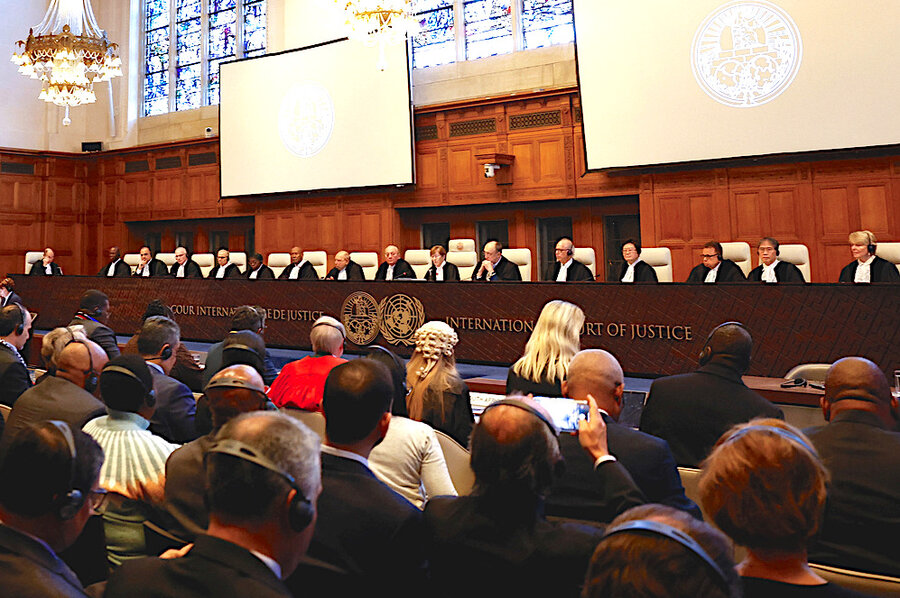A court’s soft words for a hard crisis
In the days since the International Court of Justice issued a preliminary ruling on the conduct of Israel’s military operations in Gaza, every party with a stake in the conflict has found some confirmation of its point of view.
South Africa felt “vindicated” in its decision to file a charge of genocide against Israel in the world’s top court. Palestinians felt that their rights as people – and as a people – were acknowledged. In the court’s refusal to demand an immediate cease-fire, Israel saw confirmation of its right to defend itself from further attacks by Hamas.
The court, which issued its opinion last Friday, did not rule on the key question of whether Israel had any intent of genocide. Rather, it simply ordered Israel to uphold the core provisions of international law regarding war – namely, to protect civilians and enable the provision of humanitarian assistance – out of a legal obligation to prevent genocide. The ruling to impose such “provisional measures” means the court found that the charges against Israel “appear to be capable of falling within” the 1948 Genocide Convention and thus do deserve further legal scrutiny.
That in itself is a fairly low bar, legal experts point out. The case will likely take years to resolve. But the court was careful to strike a balance. It called for the immediate release of the remaining hostages held by Hamas, the governing Palestinian group in Gaza whose militants attacked Israel last October, even though South Africa did not ask the court to take action against Hamas.
The ability of each side to find a silver lining reflects what Todd Buchwald, former ambassador for the U.S. Department of State’s Office of Global Criminal Justice, called the wisdom of restraint. Indeed, the court’s decision sends a timely message that the real power of international law rests more on the principle of respect for individual dignity than on broad condemnation.
The ruling challenges all nations to “take international law seriously at a time of increasing violence and conflict and decreasing respect for the authority of international legal institutions,” wrote David Kaye, a law professor at the University of California, Irvine, in Foreign Affairs.
It also illustrates how any people caught in a violent crisis can have access to a court. In Sudan, for example, where a civil war has displaced more than half a million people, citizens there pointed to the ruling as confirmation of one possible avenue of justice for them.
The case also turned a lens on South Africa, which had broad support from across the Global South in lodging its case against Israel. More than a few of its citizens say high levels of corruption at home undermine their government’s credibility in questioning Israel’s response to Hamas.
The most consequential shift, however, may be taking place within Israel. Demands for elections have grown as the conflict drags on and more than a hundred Israeli hostages have not been brought home. Interest in reconciliation is growing, particularly among young Jewish and Arab Israelis. “There was a level of urgency I had not sensed before,” wrote Maya Savir, an Israeli activist who studied post-conflict healing in Rwanda and South Africa and now leads workshops across her own country, in New Lines Magazine.
In trying to achieve a measure of balance in its ruling, the court sent a signal for calm reflection on what level of justice and mercy might be needed for Israelis and Palestinians. Sometimes not condemning opens a window for both truth and reconciliation.





